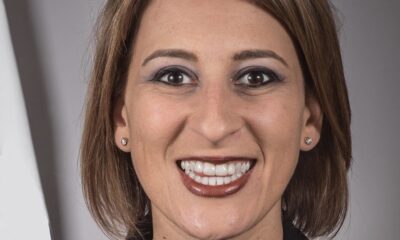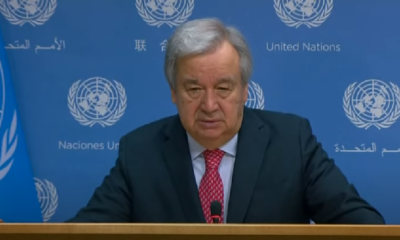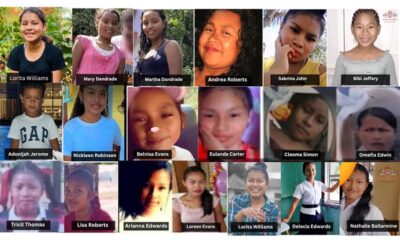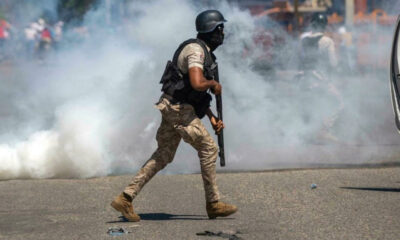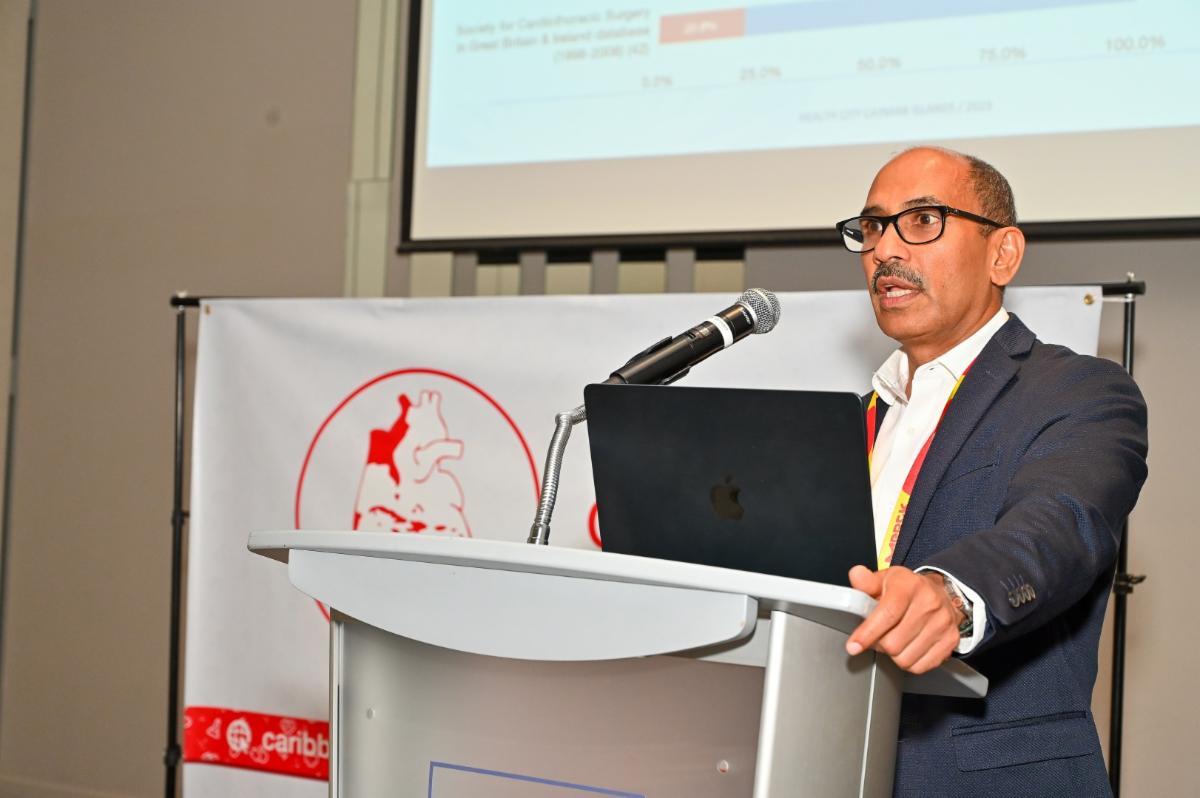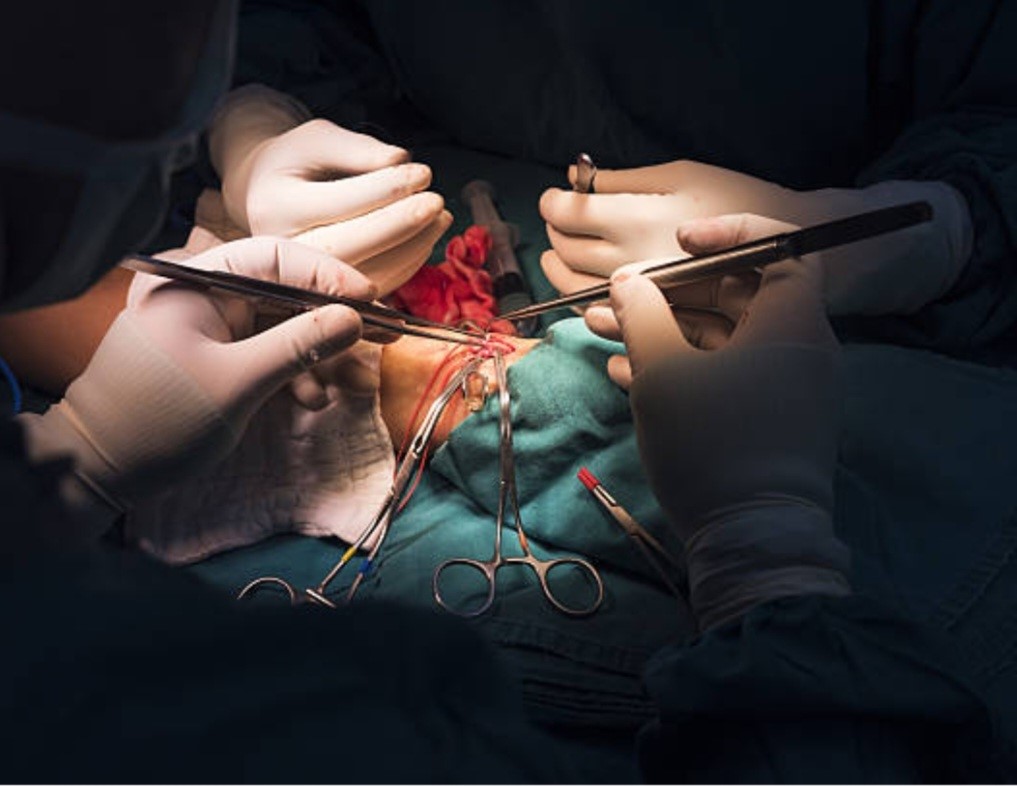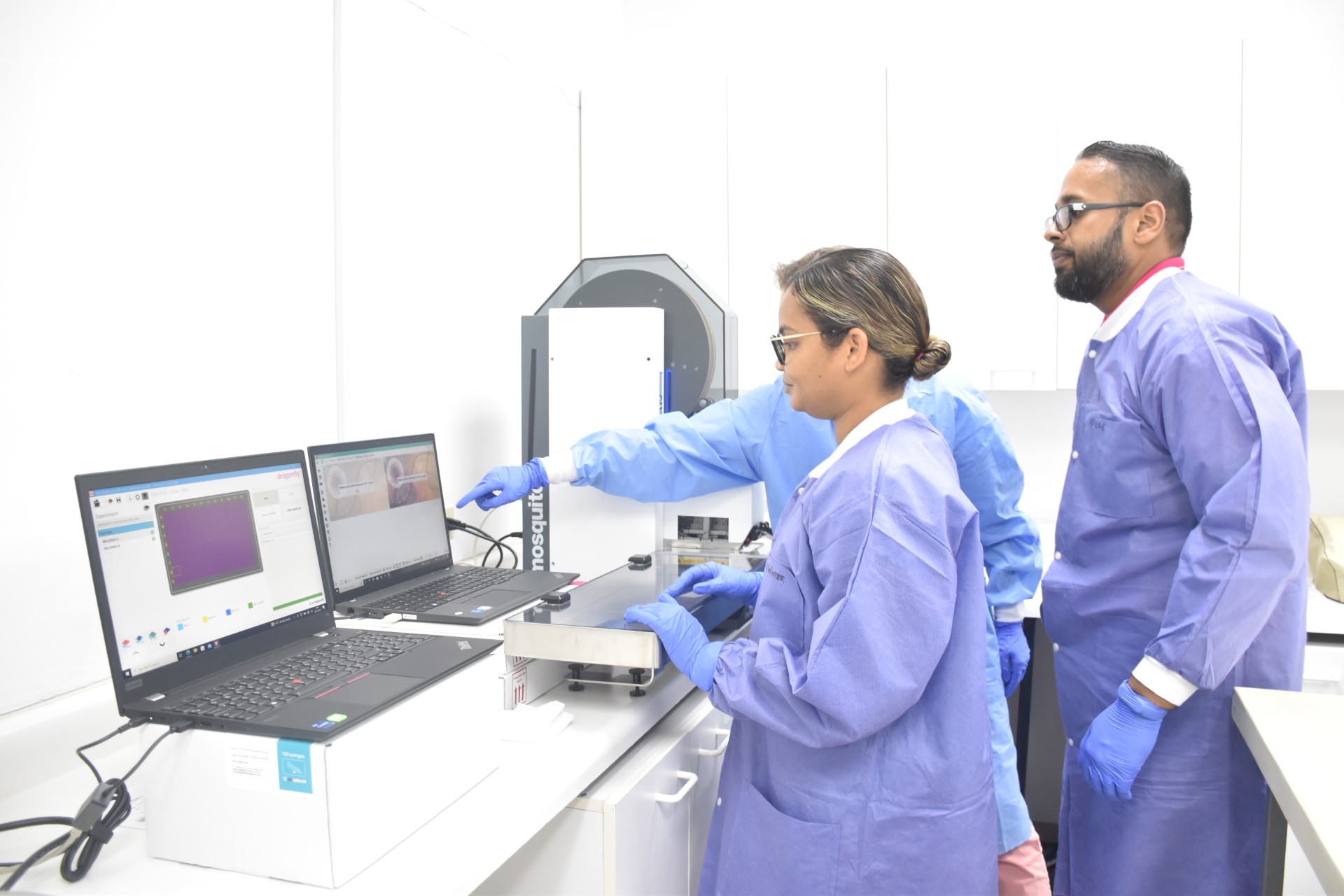KINGSTON, Jamaica (August 10, 2023) – There is hope for patients suffering from critical cardiovascular issues in the Caribbean, reports one of the region’s leading cardiac specialists.
Addressing the 36th Caribbean Cardiac Society Conference last month in Kingston, Jamaica, Dr. Binoy Chattuparambil, Senior Consultant, Cardiovascular & Thoracic Surgery and Clinical Director at Health City Cayman Islands, highlighted the life-saving ECMO or extracorporeal membrane oxygenation process, a form of life support for patients, successfully and consecutively performed at the Caymanian facility.
“There is no reason for patients with reversible cardiac diseases (to) die because you can put them on ECMO and the technology is very good and our understanding (of it also) is very good,” Dr. Binoy told his peers, explaining that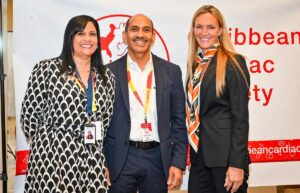 ECMO provides time for the body to rest and recover by doing the work of the heart and lungs.
ECMO provides time for the body to rest and recover by doing the work of the heart and lungs.
Having saved countless lives with this technology at the Cayman Islands hospital, the respected surgeon cited a case of a child who is doing well following treatment with ECMO and transfer to the United States for a heart transplant: “Whether it is reversible pulmonary reasons or cardiac reasons, just put them on ECMO and the recovery is usually very good and we can save lives.”
In 2017, the hospital became the Caribbean’s first regional center to provide the advanced form of life support (ECMO). The hospital also installs artificial hearts or left ventricle assist devices (LVAD) for chronic or advanced heart failure patients for whom a transplant is unlikely to be readily available in the mainland United States. Health City anticipates that transplant services will be available in the Cayman Islands in the near future following the establishment of transplant laws and regulations.
The theme of the Kingston conference was “Serving and Saving the Hearts of our People Today, Tomorrow and Beyond!” and Dr. Binoy presented on “Enhancing Cardiac Surgery in the Region – Updates and Perspectives”.
The surgeon expressed his joy at seeing greater collaboration between cardiac surgeons and cardiologists throughout the region. “Now I see my cardiologists more often in our hybrid cath lab rather than outside,” said Dr. Binoy, who established the adult and pediatric cardiac programs at Health City Cayman Islands in 2014 and has overseen thousands of successful cardiac surgeries and procedures at the tertiary care hospital.
He revealed that there were no deaths or reinterventions from elective Coronary Bypass Surgery at Health City Cayman Islands and minimally invasive surgery has been successfully completed for most mitral valve defects. Additionally, aortic valve surgery has evolved over the past two decades from an open incision with a large scar to that of no incision and no scar.
Pulmonary thromboendarterectomy to treat chronic pulmonary thromboembolism is also another achievement at the Joint Commission International (JCI)-accredited institution. This procedure has been more frequently performed since the COVID-19 pandemic where patients often present with acute pulmonary embolism which can later present as chronic thromboembolic pulmonary hypertension.
In the specialized areas of pediatric and neonatal surgery, a variety of life-saving surgeries to correct defects in the heart, in collaboration with a pediatric interventional cardiologist, have been achieved at Health City Cayman Islands. Children from over 25 countries have been treated, including those families who have insufficient funds and are supported by various charities.
A broad spectrum of vascular surgery options with successful outcomes are also provided, including repair of major arteries in the chest and abdomen to treat aneurysms, and replacement of major arteries in the chest through minimally invasive or no-incision procedures.
Dr. Binoy concluded that Healthy City has “significantly contributed to the enhancement of the scope and landscape of cardiovascular surgery in the region”, and commended the Health City team for the excellent service that they have provided over the past nine years.
Photo Captions
Header: Dr. Binoy Chattuparambil addressing the cardiac conference in Jamaica.
Insert: Health City’s team at the conference included (from left): Sales and Marketing Specialist Ingrid Harris, Dr. Binoy and Rebekah Anne Brooks, Head of Marketing & Sales.
About Health City Cayman Islands
Health City Cayman Islands is a medically advanced tertiary hospital located near High Rock in the district of East End in Grand Cayman. The brainchild of internationally renowned heart surgeon and humanitarian Dr. Devi Shetty, it features a unique model of health care, built with a focus on the patient and rooted in innovative business models that allow the delivery of high-quality, affordable care. It is the largest hospital in the Caribbean to have earned the prestigious Gold Seal of Approval from Joint Commission International (JCI), the worldwide leader in accrediting the quality of health care. For more information visit www.healthcitycaymanislands.com.
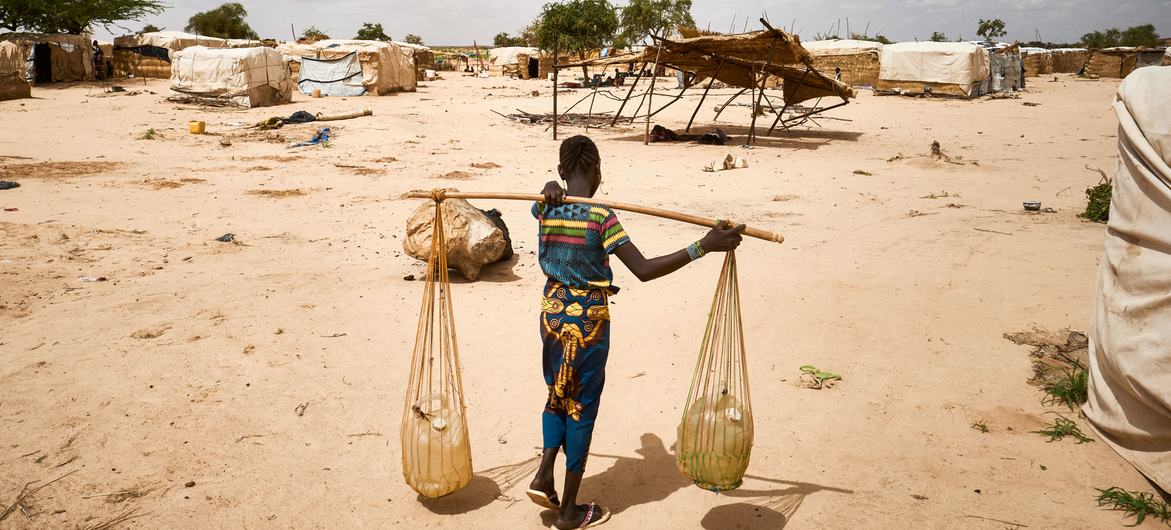

 Crime5 days ago
Crime5 days ago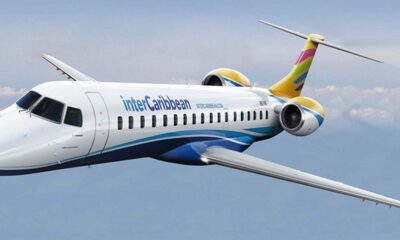
 Caribbean News1 week ago
Caribbean News1 week ago
 News1 week ago
News1 week ago
 News6 days ago
News6 days ago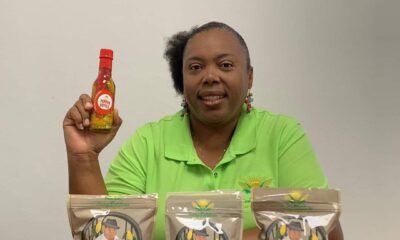
 News5 days ago
News5 days ago
 Caribbean News6 days ago
Caribbean News6 days ago
 Bahamas News5 days ago
Bahamas News5 days ago
 Crime5 days ago
Crime5 days ago

